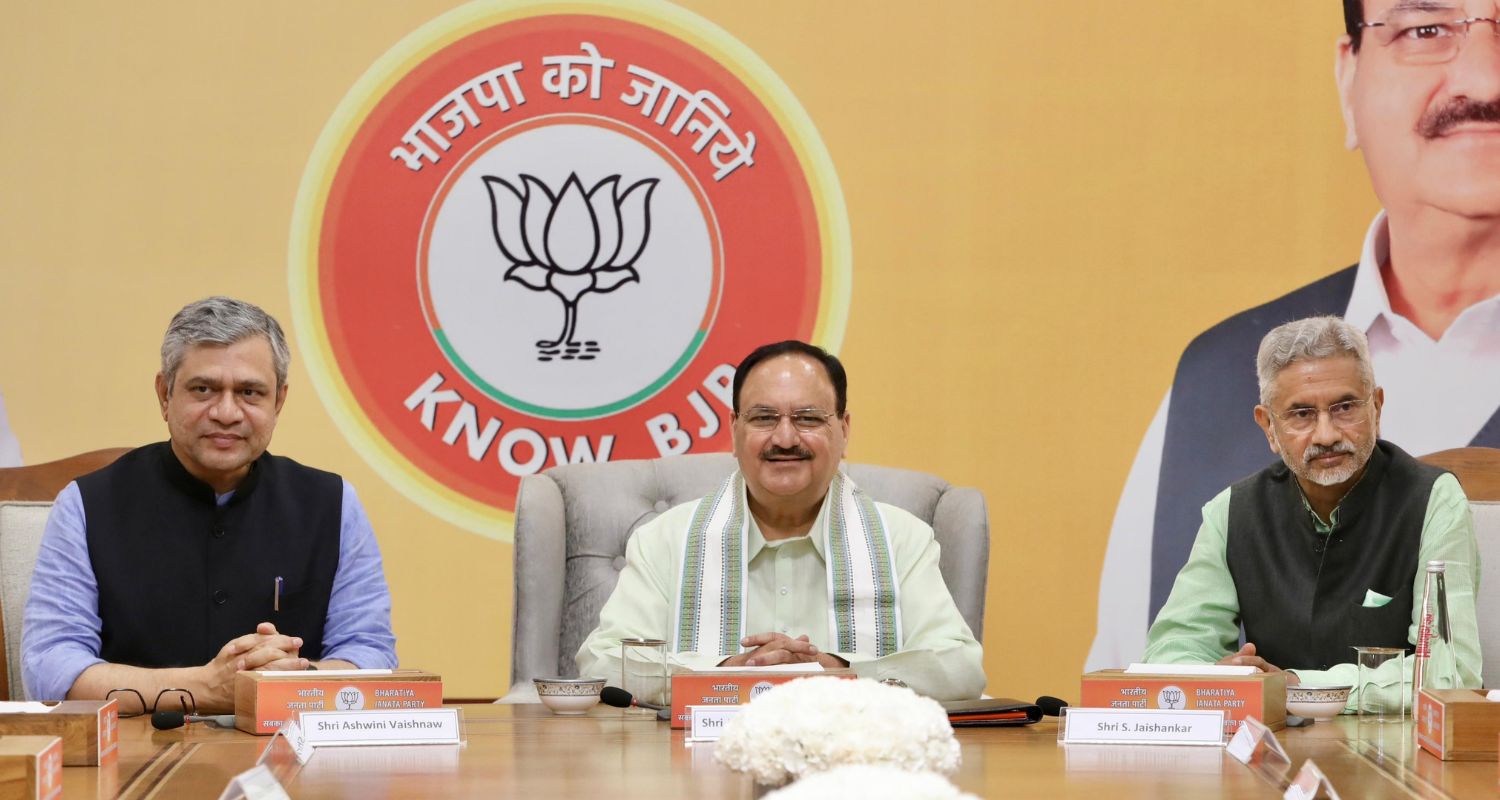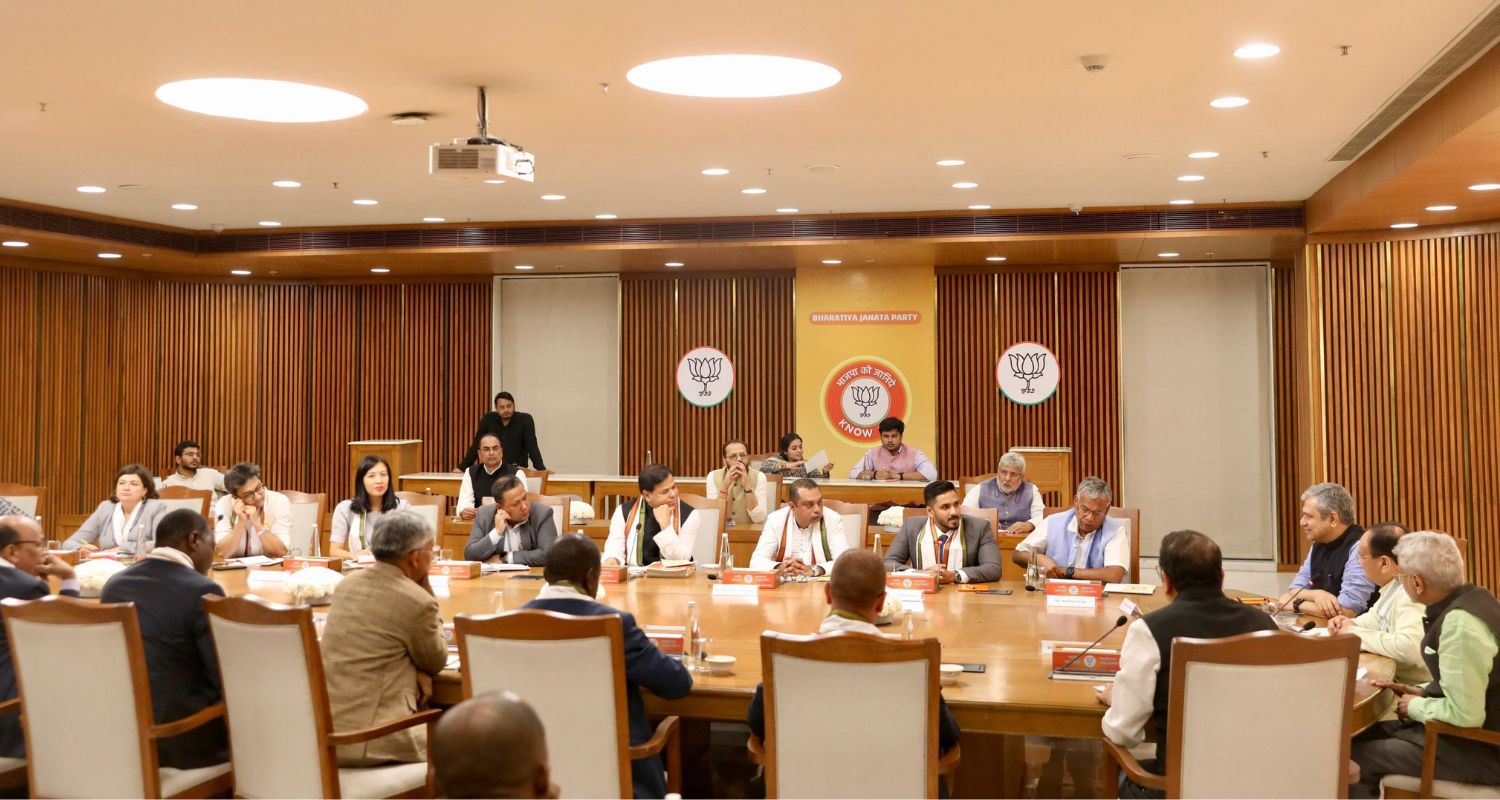In a significant move under the 'KNOW BJP initiative,' Bharatiya Janata Party (BJP) National President JP Nadda, along with External Affairs Minister S Jaishankar and Union Minister Ashwini Vaishnaw, chaired a meeting at the party headquarters. They engaged with representatives of eighteen political parties from ten countries, marking an intriguing international exchange.
EAM Jaishankar expressed optimism about the visit, believing it would enhance understanding of India's vibrant democratic processes. Taking to X, he shared details of the meeting, emphasising its potential contribution to broader insights into Indian democracy.

The visit of these representatives was orchestrated by the BJP, aiming to provide them with firsthand experience and insights into the party's election campaign strategies. During the meeting, the delegation received a comprehensive briefing on the BJP's campaign strategies and the electoral process in India.
Among the participating political parties were Australia's Liberal Party, Vietnam's Communist Party of Vietnam, Bangladesh's Awami League, Israel's Likud Party, Uganda's National Resistance Movement, and Tanzania's Chama Cha Mapinduzi. Also in attendance were representatives from Russia's United Russia Party, Sri Lanka's Sri Lanka Podujana Peramuna, and United National Party.
Additionally, delegates from Mauritius, including the Militant Socialist Movement, Labour Party, Mauritian Militant Movement, and Parti Mauricien Social Democrate, participated in the initiative. From Nepal, representatives of Nepali Congress, Janamat Party, Communist Party of Nepal (Unified Marxist-Leninist), Communist Party of Nepal (Maoist), and Rashtriya Swatantra Party were present.

The exchange reflects BJP's efforts to foster international engagement and share insights into its electoral strategies. The presence of delegates from diverse political landscapes underscores the significance of cross-border collaboration and learning in contemporary politics.
The BJP initiative signifies a broader trend towards global political dialogue and exchange, highlighting the growing interconnectedness of political processes worldwide. As India's political landscape continues to evolve, such interactions offer valuable opportunities for learning and collaboration on a global scale.




